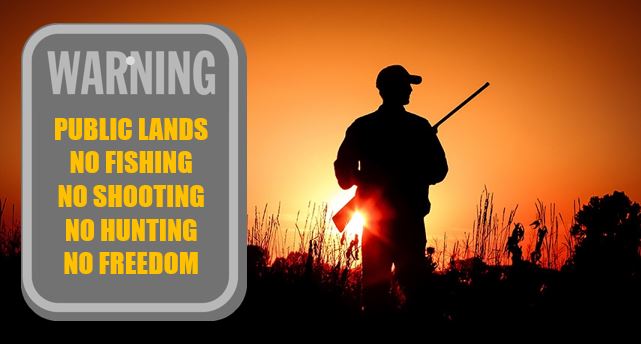It’s probably an esoteric issue to most Americans, but to landowners and businesses, primarily in the Western U.S., the “blanket” extension of ESA protections to “threatened” species has punished them for decades. A “take” of a protected species can bring massive civil and criminal penalties.
Michael Bastasch
The Trump administration proposed repealing a decades-old Endangered Species Act (ESA) policy that critics say undermines congressional intent and offers landowners no incentive to aid in the recovery of federally-protected species.
Should the Interior Department repeal the so-called “blanket section 4(d) rule,” it would be “a big win for the rule of law and species’ conservation,” said Pacific Legal Foundation (PLF) attorney Jonathan Wood.
“If the regulation is repealed, we’d be back to Congress’ original approach: take would be reserved as a last line of defense for endangered species,” Wood told The Daily Caller News Foundation.
It’s probably an esoteric issue to most Americans, but to landowners and businesses, primarily in the Western U.S., the “blanket” extension of ESA protections to “threatened” species has punished them for decades. A “take” of a protected species can bring massive civil and criminal penalties.
“Private property owners’ incentives are key because most endangered species depend on private land for most of their habitat,” Wood said. “This reform will improve those incentives and make it easier for states, property owners, and environmentalists to work together on innovative conservation plans.”
The U.S. Fish and Wildlife Service extended “take” protections to species listed as “threatened” under the ESA, despite Congress wanting federal agents to regulate “threatened” species different from those classified as “endangered.”
Federal officials adopted the “blanket” rule shortly after the ESA became law in 1973. Officials say the “blanket” rule to streamline compliance and focus “attention on the threats that make a difference to the species’ recovery,” according to the U.S. Fish and Wildlife Service.
That means there’s no incentive for landowners to help keep species protected under the ESA from becoming “endangered,” since the “take” regulations are no different if even if animals become more abundant.
Environmentalists, however, say Interior’s proposal would end protections for more than 300 species under ESa protection. One group called the rule change a “death sentence” for protected species.
“The Trump administration just issued a death sentence to nearly 300 threatened species,” Noah Greenwald of the Center for Biological Diversity said in a statement.
“If enacted, this rule could be the end for iconic wildlife like the northern spotted owl and southern sea otter,” Greenwald said. “Trump is erasing America’s natural heritage to make his friends richer and allow polluters to ravage our environment. It’s disgraceful.”
The U.S. Fish and Wildlife Service defines a “take” as an attempt to “harass, harm, pursue, hunt, shoot, wound, kill, trap, capture, or collect or attempt to engage in any such conduct” of an ESA-protected species.
Taking an ESA-protected species can bring hefty civil and criminal penalties. PLF filed two petitions — on behalf of the National Federation of Independent Businesses and Washington Cattlemen’s Association — calling for the “blanket” rule to be repealed.
Interior’s proposed repeal of the “blanket” rule is in response to those petitions. Wood hopes the repeal will go through and give landowners an incentive to revive populations of threatened species.
“From the owners’ perspective, the damage is done once a threatened listing occurs,” said Wood. “Varying regulations based on the degree of threats a species faces better aligns the incentives of property owners with the interests of species, lifting restrictions as species recover and tightening them as species decline.”
Free Range Report
Thank you for reading our latest report, but before you go…
Our loyalty is to the truth and to YOU, our readers!
We respect your reading experience, and have refrained from putting up a paywall and obnoxious advertisements, which means that we get by on small donations from people like you. We’re not asking for much, but any amount that you can give goes a long way to securing a better future for the people who make America great.
[paypal_donation_button]
For as little as $1 you can support Free Range Report, and it takes only a moment.



